The End of the World #10: Interview with Michael von der Schulenburg
In this unusual episode of our End of the World series, ECFR's Anthony Dworkin is talking to Michael von der Schulenburg, who has held positions…
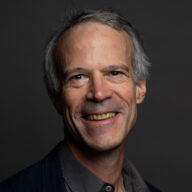
Senior Policy Fellow
Human rights; democracy; justice; North Africa (especially Egypt and Tunisia); war crimes; drones and counterterrorism; US foreign policy
English, conversational French
Anthony Dworkin is senior policy fellow at the European Council on Foreign Relations. He leads the organisation’s work in the areas of human rights, democracy, and justice.
Among other subjects, Dworkin has conducted research and written on European and US frameworks for counterterrorism, the European Union’s human rights strategy, and the pursuit of justice in the international response to mass atrocities. Since 2011, he has also followed political developments in North Africa after the Arab uprisings, with a particular focus on Egypt and Tunisia. Before joining ECFR in 2008, Dworkin was executive director of the Crimes of War Project, an NGO that worked to raise public and media awareness of the laws governing armed conflict. He co-edited the book Crimes of War: What the Public Should Know (2nd ed., 2007) and wrote extensively for the project’s website about war crimes and contemporary conflict, in addition to conducting training sessions on the laws of war and international justice in several countries.
Dworkin has written and spoken widely on questions related to human rights, democracy, and justice. He is a contributing editor for the British magazine Prospect and has written for several other publications, including the Financial Times, The Guardian, the International Herald Tribune, the Washington Post, El País, the New Statesman, the Times Literary Supplement, Foreign Policy, and World Politics Review. He has been a member of the Terrorism/Counterterrorism Advisory Committee and the London Advocacy Advisory Committee of Human Rights Watch. Dworkin has also worked as a producer and reporter for BBC Current Affairs.
In this unusual episode of our End of the World series, ECFR's Anthony Dworkin is talking to Michael von der Schulenburg, who has held positions…
In episode 5 Mark is joined by ECFR's Anthony Dworkin and Professor Mary Kaldor, who is Director of the Civil Society and Human Security Research…
Mwatana Organisation for Human Rights Chairperson Radhya Al-Mutawakel provides a view from the ground on the latest developments in Yemen, the current human rights and humanitarian…
It is time to look closely at Europe’s evolving counter-terror activity
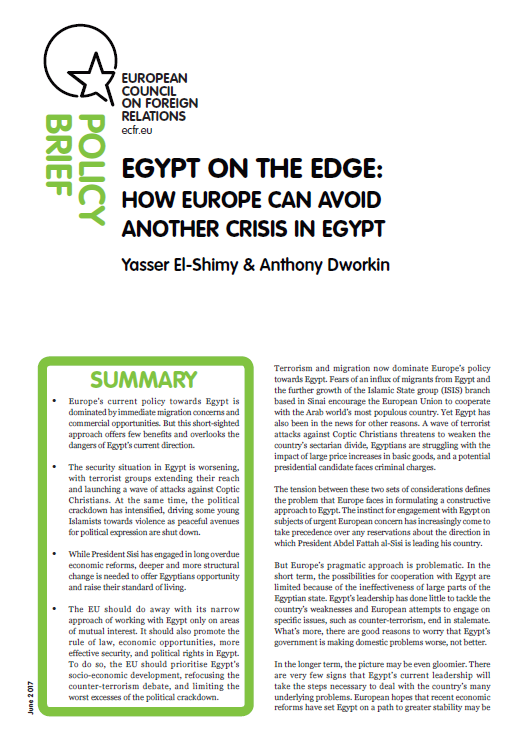
The EU should do away with its narrow approach of working with Egypt only on areas of mutual interest
In this special episode, author and terrorism expert Professor Gilles Kepel talks with ECFR's Anthony Dworkin about the factors that gave rise to the network-based…
With Kurt Volker, Executive Director, McCain Institute Chaired by Anthony Dworkin, Senior Policy Fellow, ECFR President Donald Trump has been in office for more…
Uncritical engagement with Egypt will not promote European interests, says EWGE ahead of Chancellor Merkel's visit to Cairo
With Michael Clarke, former Director-General of RUSI & Anthony Dworkin, Senior Policy Fellow, ECFR Chaired by Ulrike Esther Franke, Researcher, ECFR The event…
ECFR’s director Mark Leonard discusses with ECFR's Research Director Jeremy Shapiro and ECFR Policy Fellows Anthony Dworkin & Mattia Toaldo how the EU should respond…
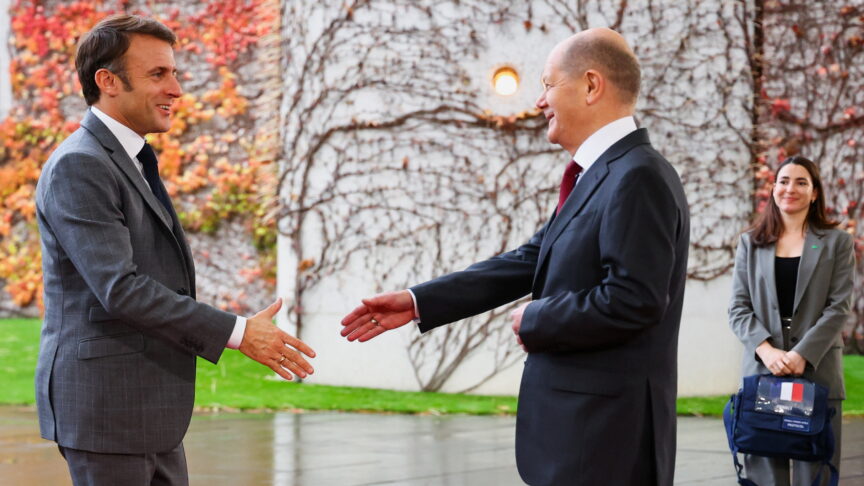
The Maghreb policies of the four most influential EU member states are diverging – but this fragmentation hinders the EU’s long-term interests in the region
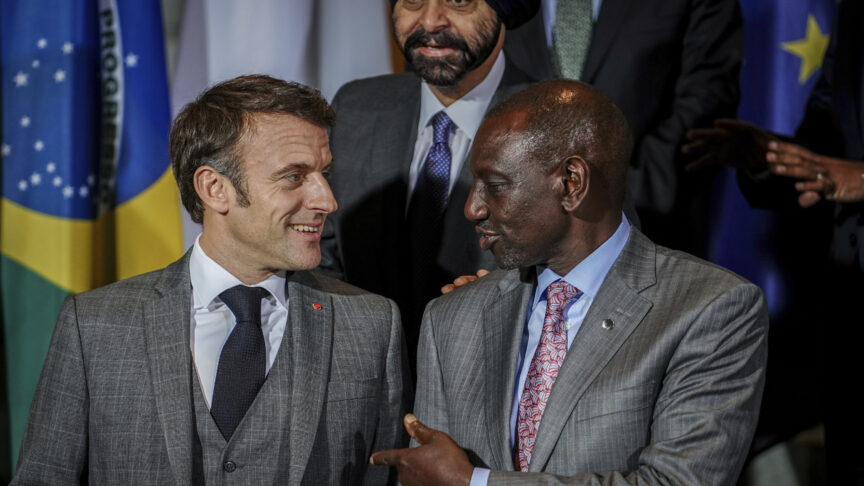
European countries are rethinking their policies on multilateral development. In the face of intersecting crises, they should embrace a new, far-sighted vision for development cooperation.
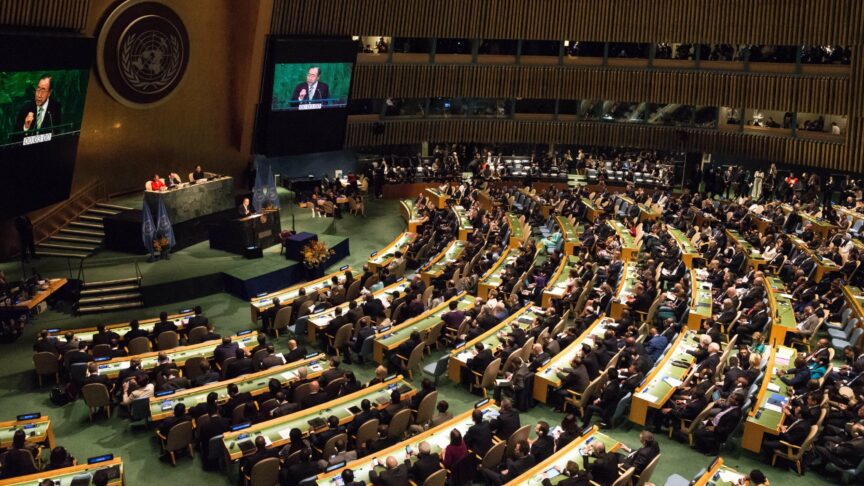
Geopolitical tensions are hindering progress in multilateral climate cooperation. The EU should continue to supplement negotiations under the UN climate convention with smaller initiatives that bring together like-minded, ambitious partners.
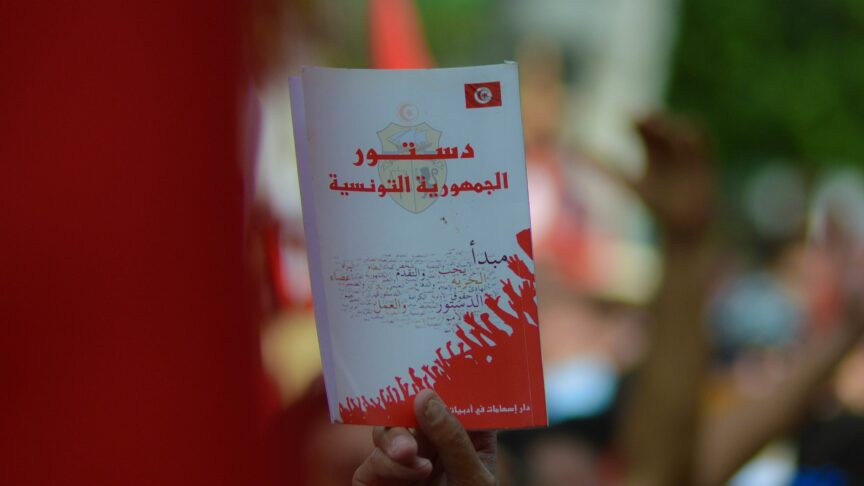
Tunisia’s new constitution would create an unaccountable presidency. European policymakers should state that it is not genuinely democratic, while continuing to support the country economically.
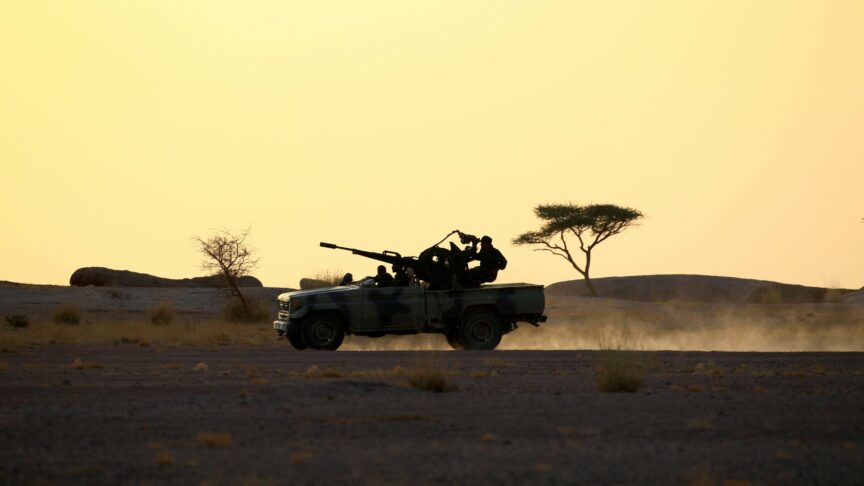
Europeans should pay closer attention to rising tensions between Morocco and Algeria. A more balanced European approach to both countries could help stave off instability in north-west Africa and the Mediterranean.
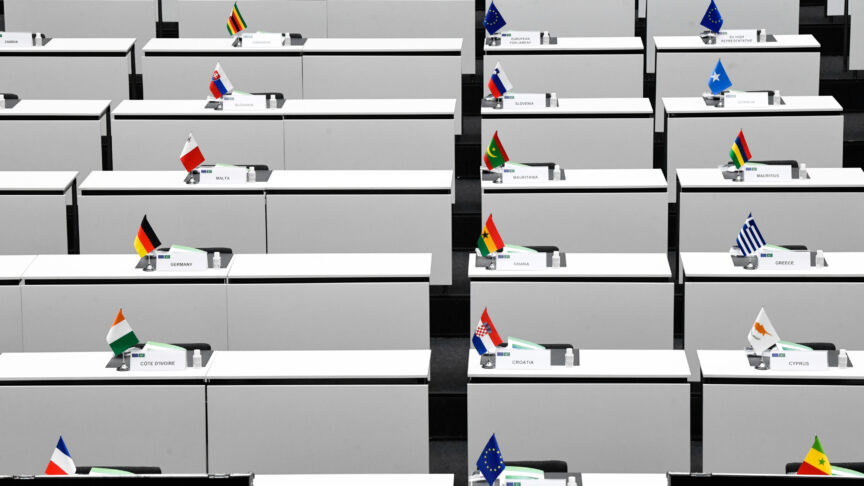
The EU should promote a new global compact on health, matching countries’ commitment to surveillance and reporting of pathogens with support for stronger healthcare systems and greater equity in the allocation of countermeasures
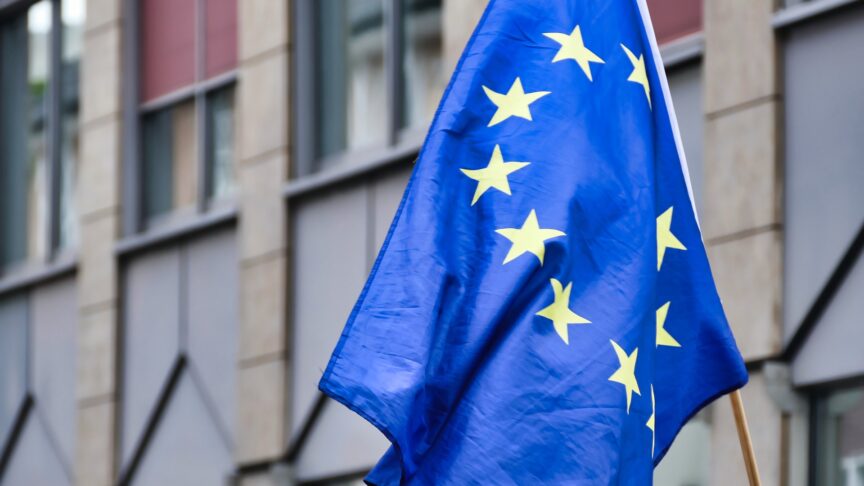
The covid-19 pandemic has brought forward a new agenda for multilateralism, focused on areas including global health, economic recovery, climate, technology, and trade
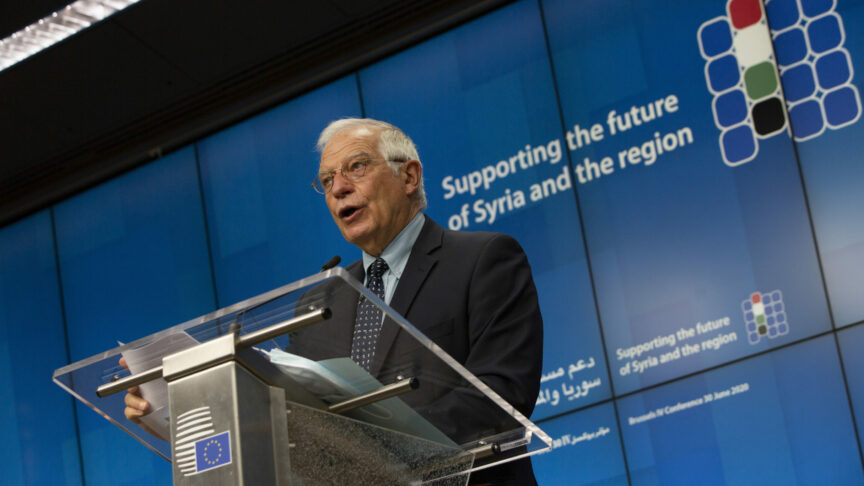
To achieve greater sovereignty, Europe needs to push back against rival powers, build leverage in armed conflicts, and be more effective in supporting reform
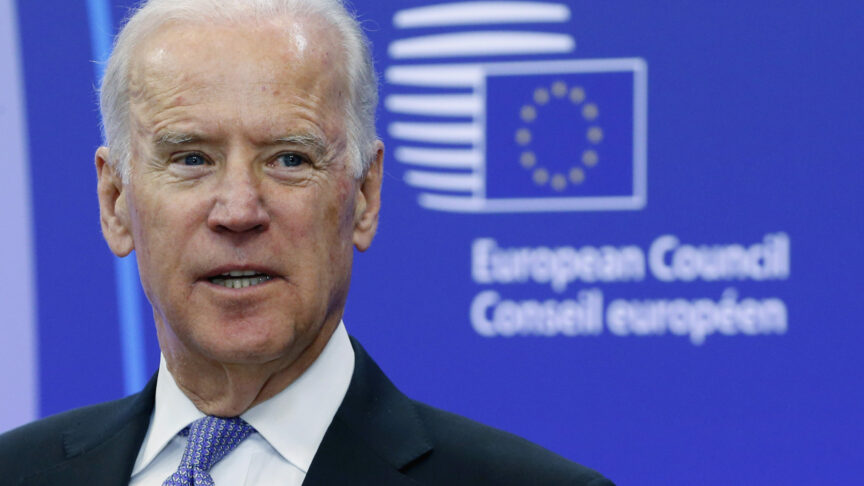
The Trump years galvanised Europeans’ efforts to strengthen their own sovereignty; they now need to agree concrete offers they can make to the new administration
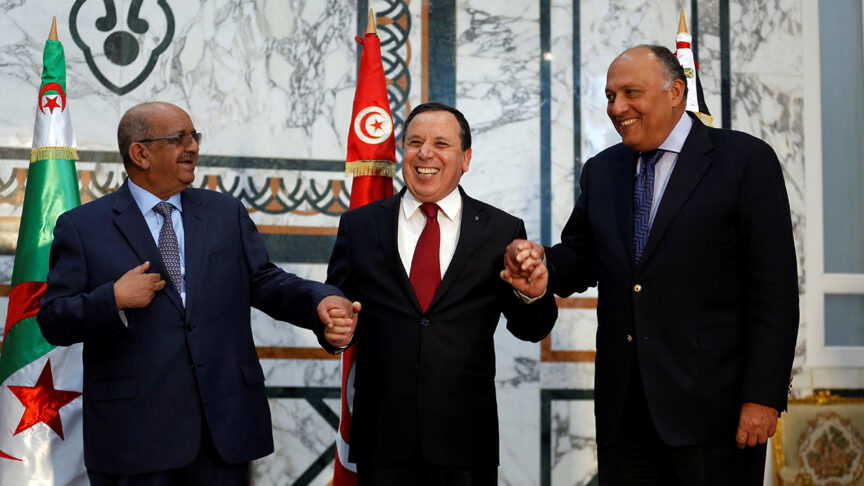
North African countries, each for their own reasons, are increasingly turning their attention towards sub-Saharan Africa
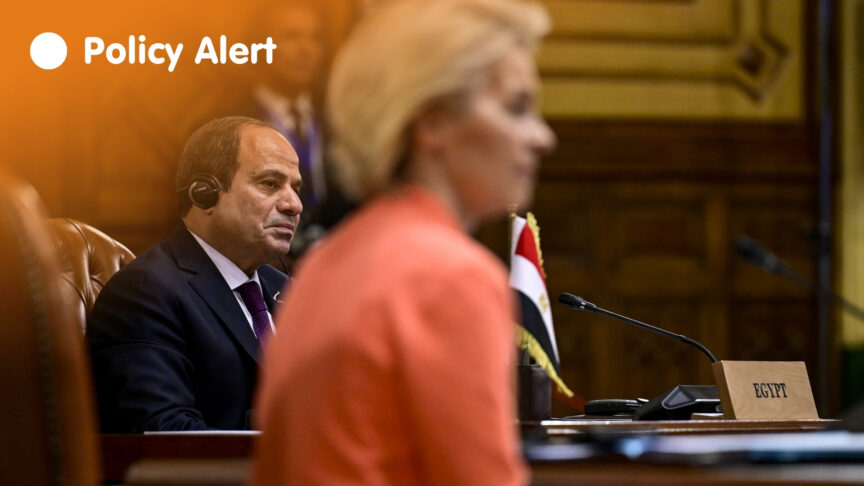
The EU should release funding to Cairo only if it undertakes following meaningful economic reforms
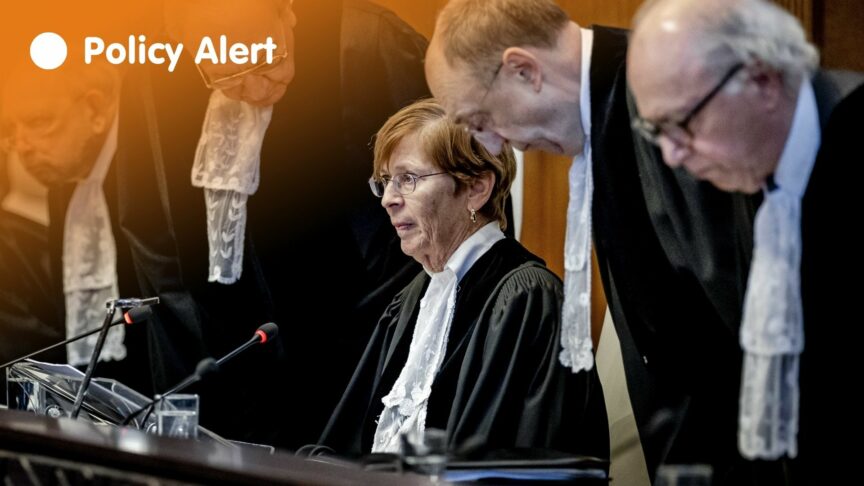
Despite their disagreements over the case, it is crucial that European countries support the implementation of the ICJ’s provisional measures
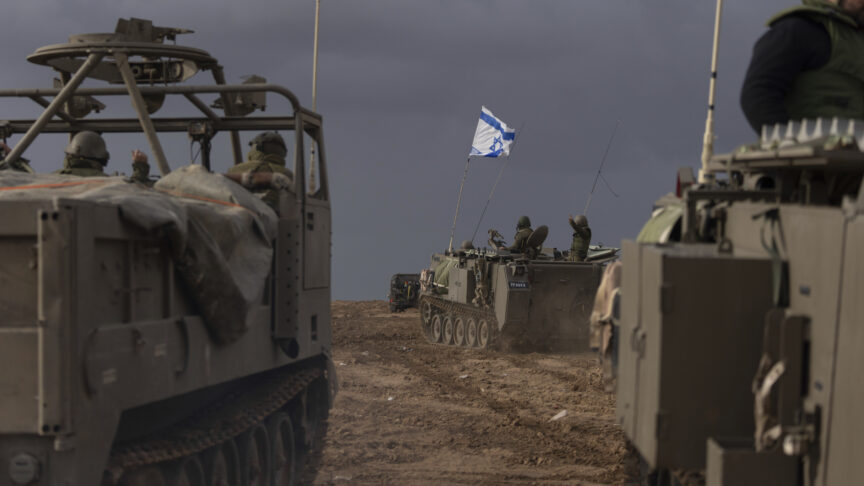
European leaders agree that Israel has the right to defend itself as long as it complies with international law. It is time that they recognise the limits those laws set
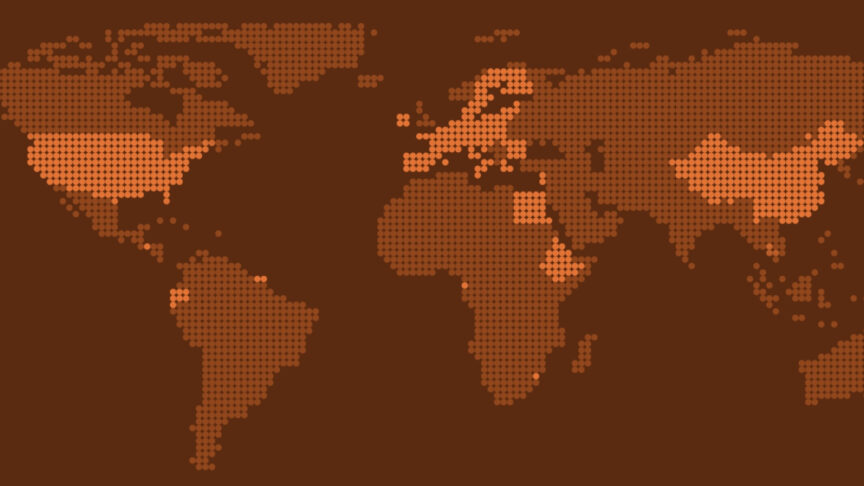
This collection of nine insightful essays illuminates the strategies employed to advance European interests and values within this evolving global polity of overlapping cooperative frameworks
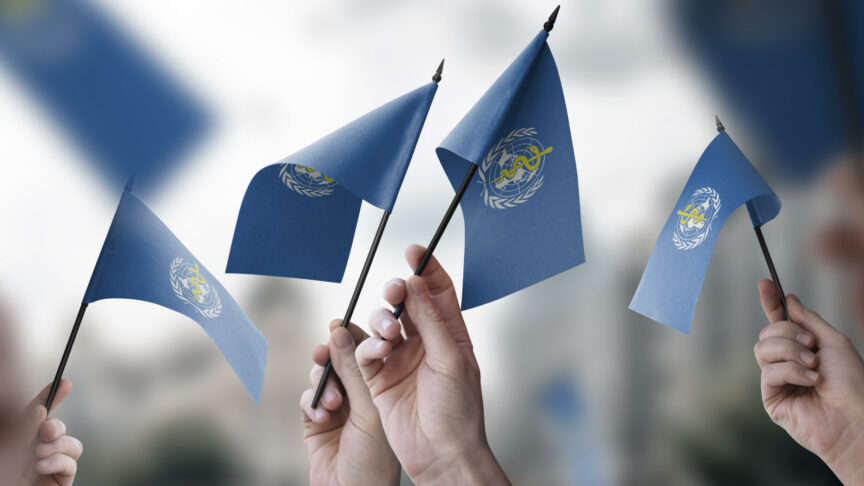
A lack of coordination among the world’s states hindered the global response to covid-19. The same problem is now disrupting international efforts to put in place a more effective system to prepare for future pandemics
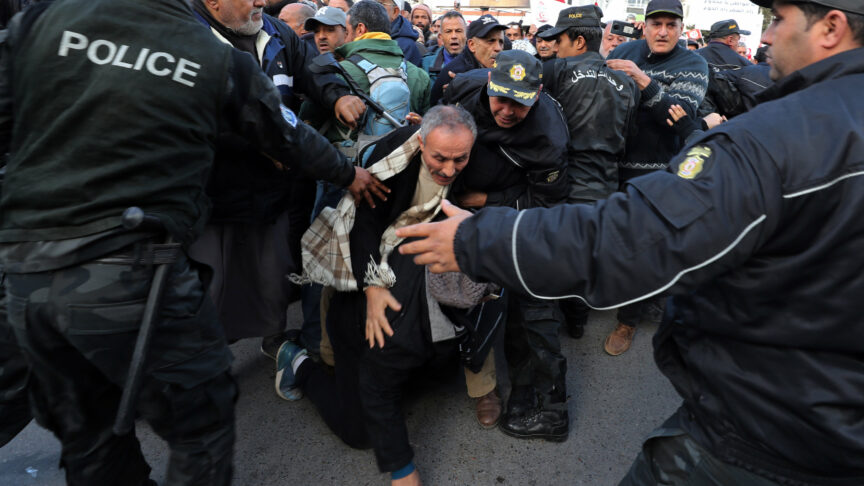
The EU has invested heavily in Tunisia’s transition to democracy since 2011. Now it must stand up for the rule of law and for the rights of those under threat
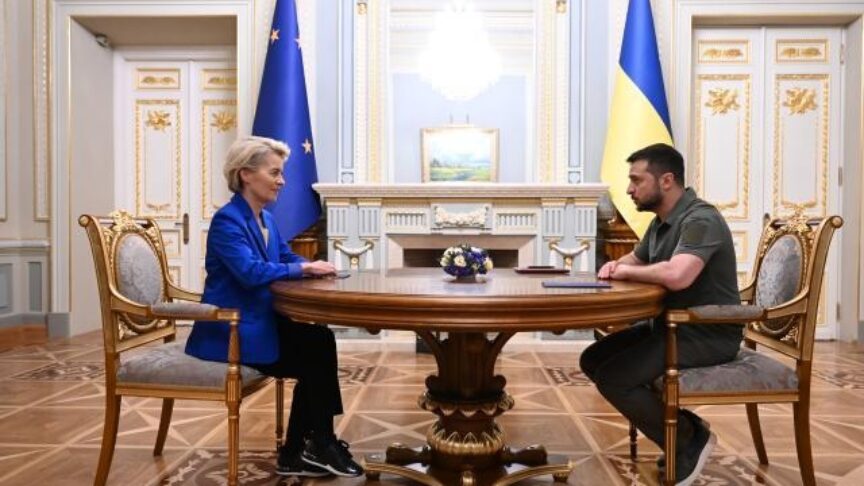
A UN-backed court could reinforce condemnation of Russia’s aggressive war and reduce Putin’s legitimacy on the international stage. But its establishment and success will depend on the commitment it receives
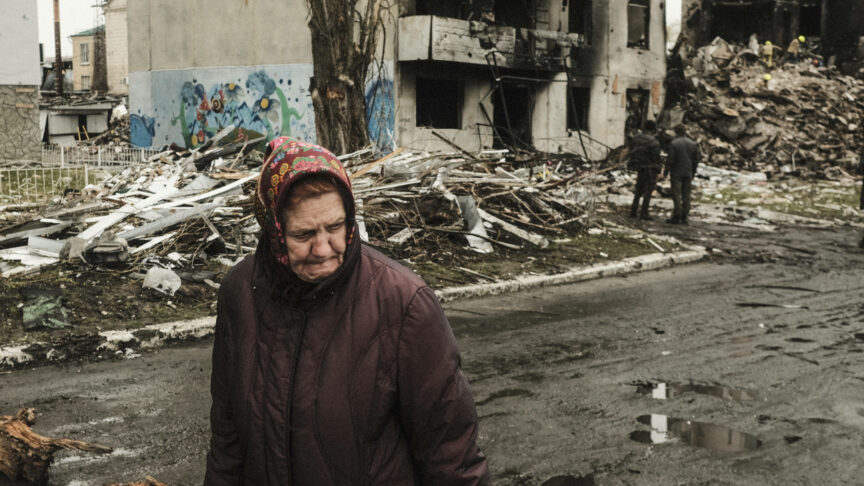
Widespread violations of international humanitarian law appear to be part of the Russian way of war. The international response to such crimes could have severe geopolitical consequences for Russia.
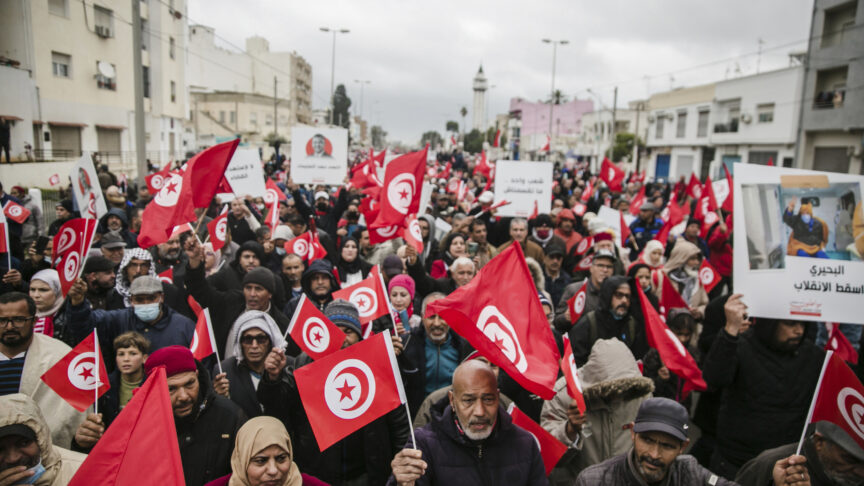
Tunisia’s president seems unwilling to compromise with his political opponents. But the EU can help set limits on his behaviour through a combination of financial assistance and public statements.
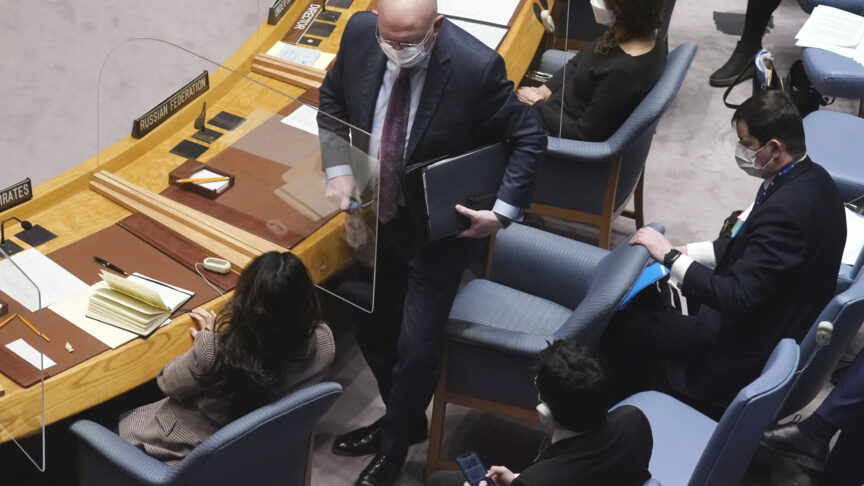
Countries that have condemned Russia’s actions are not only trying to protect Ukraine and its citizens, but also defending the principle that relationships between states should be shaped by legal principles
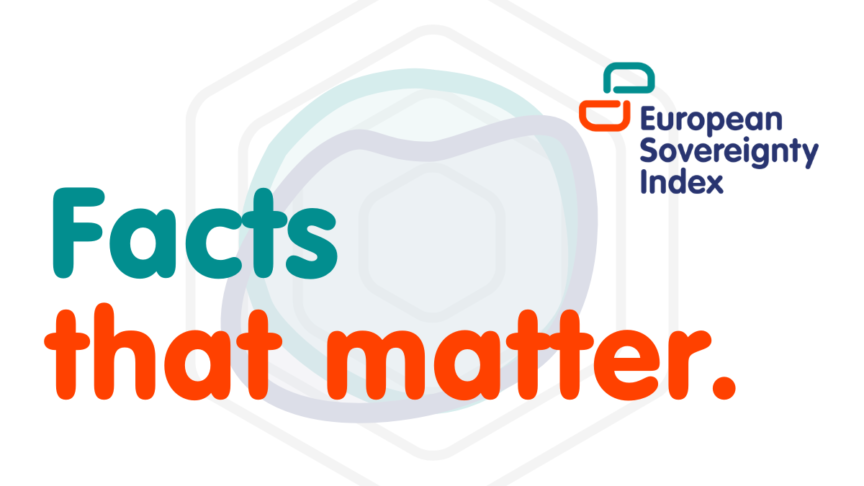
The EU can overcome the new challenges it faces and can shape the global order. To achieve this, Europeans will need to improve their joint capacity to act.
Turmoil in the Middle East and north Africa directly affects Europeans. Yet their influence in the region has never been weaker. This project maps Europe’s role across the Middle East and north Africa, making the case that Europeans can do more to leverage their influence in pursuit of core interests

Mark Leonard welcomes Anthony Dworkin to discuss the role of international law and justice in an increasingly fragmented world

This week, ECFR senior policy fellow, Susi Dennison, takes over the podcast to talk about international cooperation on global health
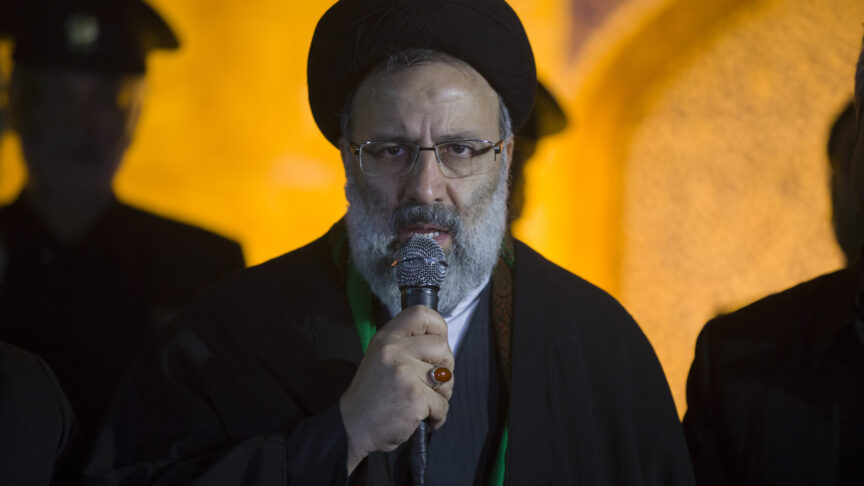
Does the election of Raisi represent a significant change of direction following the term of President Rouhani?
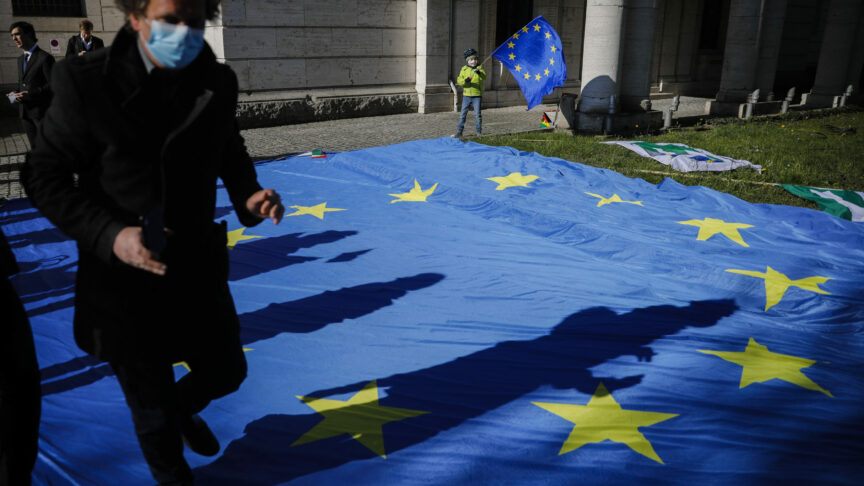
How well does the transatlantic alliance still fit with the way that Europe and the United States now see their goals in foreign policy?
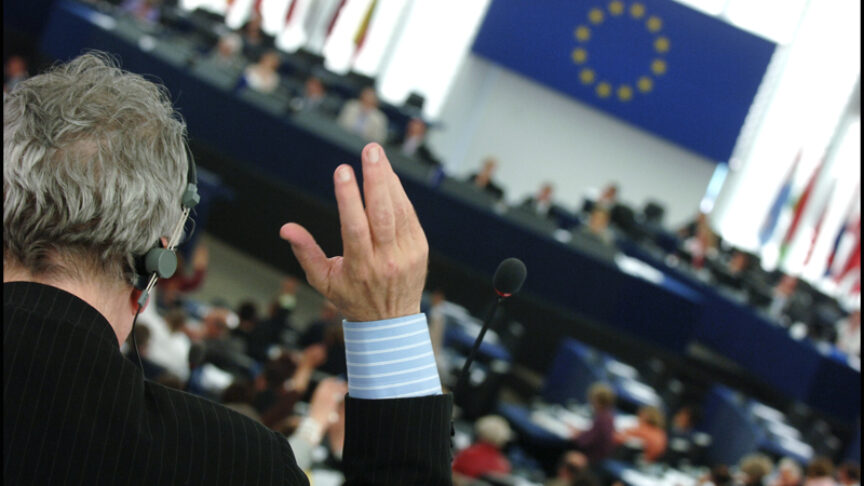
How can Europe adapt its strategies for multilateralism in this competitive world and what would they look like?
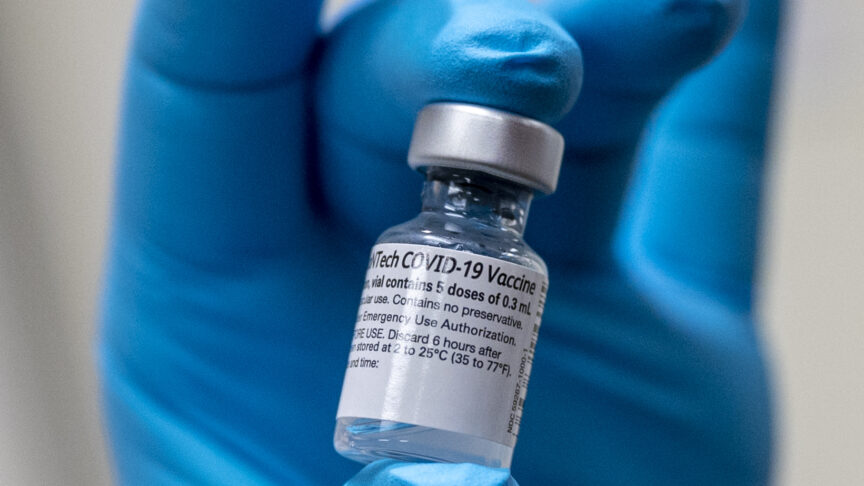
How do we go forward with the global distribution of covid-19 vaccines and what kind of geopolitical implications do surround this endeavour?
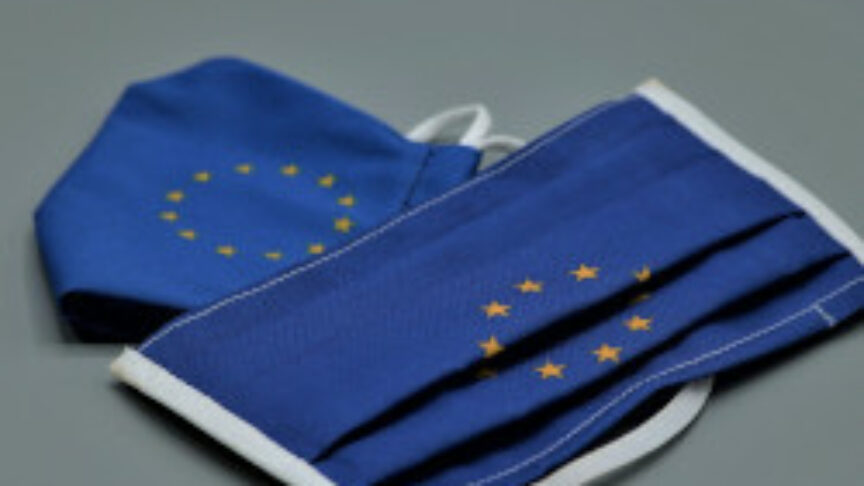
“If it’s about Europe´s role in global health, a big part of it is Europe's health sovereignty which we want to make one of the…
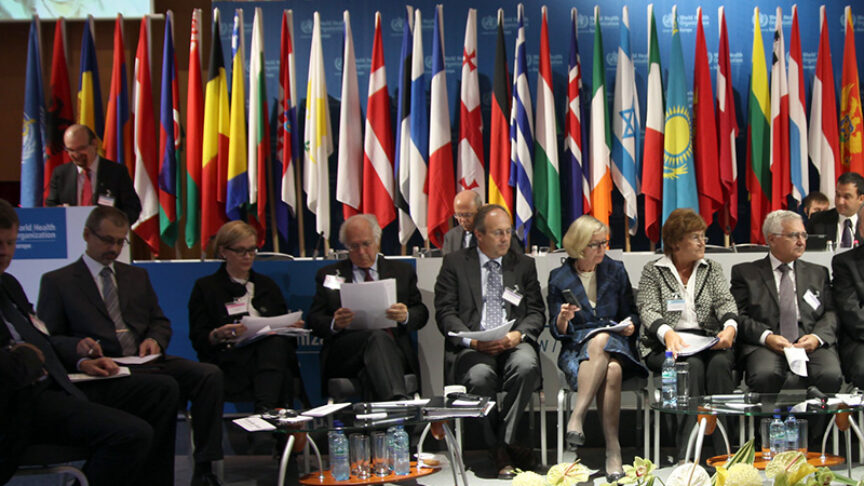
Recently, we have seen funding cuts to the WHO in the middle of the coronavirus crisis and national governments closing borders instead of calling for…
Word on the street seems to suggest that technology will be the way out of the coronavirus crisis and the lockdowns in many European countries. This…
Anthony Dworkin stands in for our usual host, Mark Leonard, to de-brief the Berlin Conference on Libya. Together with the ECFR’s experts Asli Aydıntaşbaş, Tarek…
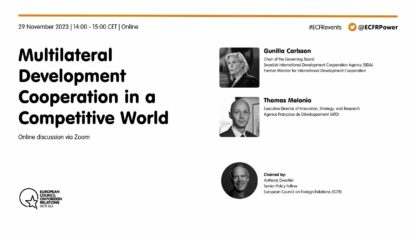
Please register for our online discussion on “Multilateral development cooperation in a competitive world” on Wednesday 29th November at 14.00-15.00 CET. European countries are rethinking their…
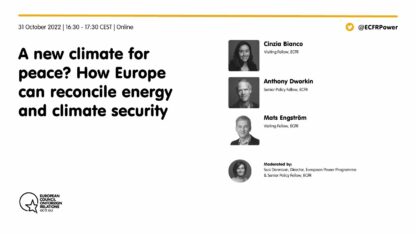
Cinzia Bianco, Mats Engström and Anthony Dworkin were in conversation with Susi Dennison to hear how Europe can best meet its energy security interests all the while preserving its credibility as a climate superpower
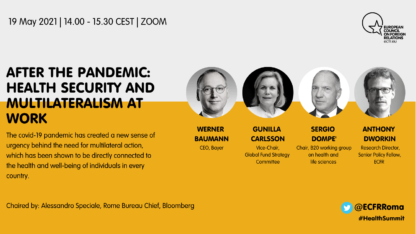
The covid-19 pandemic has created a new sense of urgency behind the need for multilateral action